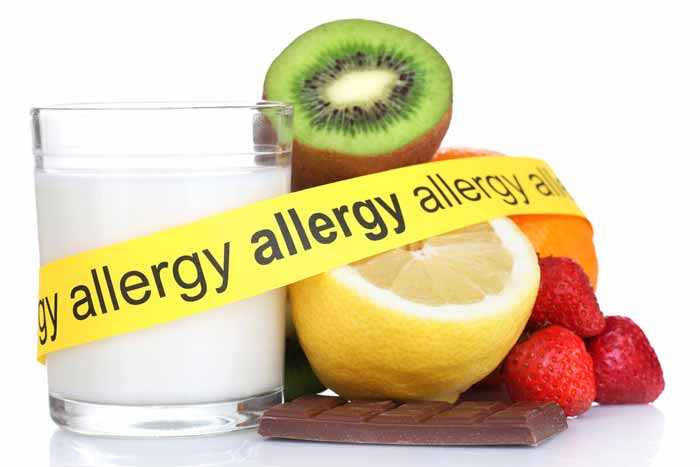Probiotics forAllergies: Food, Seasonal & Asthma
How good are probiotics for allergies be it seasonal, food or asthma? Basing on studies, how do they work? This articles explores the link between link between good bacterial and allergies and how benefits can be derived through the association. Read on to discover more
Allergies are a common occurrence in the general population. Over the years, there have been a lot of efforts towards aiding individuals handle the complexities that come along due to exposure to allergy causing agents. The larger challenge is that different individuals react to different items. There are different and varying symptoms that are associated with allergies or allergic reactions. These symptoms may include wheezing, nasal congestion, itchy eyes and skin among others.
The causes of allergic reactions vary from one individual to another and so are the symptoms. There are various studies that have been done to establish the role that probiotics play in the alleviation of allergies. While the most widely taken up approach is the notion of preventing the causative agent, sometimes the possibilities of coming in contact with it are unavoidable, thus, when it happens, it is important to be ready to handle the effects.
Probiotics and Allergies-How Effective are probiotics effective for allergies
There are studies that have come up with the observation that probiotics are useful in the alleviation of allergies for some people. Scientists have theorized that one of the sources of allergies, despite the chances that it could be inherited is the environmental conditions that we live in. The body’s immune system is able to react and handle allergens when they affect it.
However, for this to happen, the body’s immune system should be previously exposed to situations that allow it to detect and handle the situation amicably. For individuals who are in extra clean environments, eat sterile foods and have no chances of getting any bacteria in their systems, their immune system gets to a state where it sees some not so harmful allergens as potentially harmful and overreacts. This theory holds that for the body to be optimal, it needs exposure to some of these allergens so that it is familiar and aware of how to react.
Probiotics, according to the journal International Forum of Allergy and Rhinology, have an effect on the ability to aid the body manage how it reacts to varying allergens. A study was undertaken where it was found that for those individuals with seasonal allergies, their allergy symptoms subsided overtime in a way to imply that their intake of probiotics led to the improvement. The probiotics may be availed from the use of supplements to meet the need or from natural food sources.
Kefir, a probiotic rich source has been noted to have an impact on allergies and asthma. According to Dr.axe, there have been studies published in the journal of Immunology where kefir was credited to having positive effects on allergies and asthma. The suppression of interleukin-4 inflammatory markers was noted. The ability of kefir to impact on anti-inflammatory properties could be very useful in the prevention of asthma.
Probiotics and Food Allergies
The use of prebiotics in kefir is able to improve lactose intolerance. Based on the fermentation effects on the properties of kefir, there are live cultures that are present in kefir such that when taken by the consumer, it yields benefits. Among them include the introduction of good bacteria which later on serves to aid in the boosting of the immune system of the consumer. When the immune system is adaptable to the varying allergens and able to respond to their initiated reactions, it is able to control the extent to which the reaction is taken and to what extremes. This results in the taming of allergies.
There are food elements that individuals are allergic to but which if probiotics are used, the same individuals are able to tolerate. The Murdoch Children’s research institute has availed information to the effect that, following a research they undertook, children who were reacting once they consume peanut protein, on the administration of probiotics their tolerance for peanut protein was noted to increase.
The dosage availed in the study was probiotic of the strain Lactobacillus rhamnosus. It was mixed with the peanut protein and availed to the children. The content was increased gradually over a duration of time. In concluding, there was notable change that over 80 % of the children who had probiotics administered were able to tolerate it.
Probiotics Seasonal Allergies & Asthma
Seasonal Allergies
Due to changes in the weather and the flowering patterns for plants, individuals who have allergic mainly to flower pollen have a challenging time when the season to flower and bloom comes. These allergies stem from the fact that during that time, most of the plants are pollinating thereby a presence of pollen fragments in the air.
However, these reactions may be addressed by the use of probiotics which serve to reduce the body’s extreme or exaggerated reaction in a way to meet the challenge with less aggression. The body having had a chance to work with bacteria does not get extreme with the challenges posed to it by the presence of the bacteria that causes the allergic reaction. In effect, it behaves in a less reactionary method thus seeming to tolerate the allergen.
Asthma
For situations where asthma is aggravated by the season in question, probiotics would still serve the role of aiding the body adapt ot the change in a less reactionary mode. However, asthma is a challenging condition to entirely handle by the use of probiotics since its cause may not necessarily originate from the weather or season changes.
There has been no conclusive study published to the effect that the use of probiotics resolves asthma that is already scientifically proven. As such, despite the posted advantages, the advice of the medical personnel who is catering for the patient is very important. More important is the required to still observe the asthma medication given but also explore the chances of consuming beneficial probiotics which could lead to lessened attacks in terms of intensity as well as in terms of frequency.

